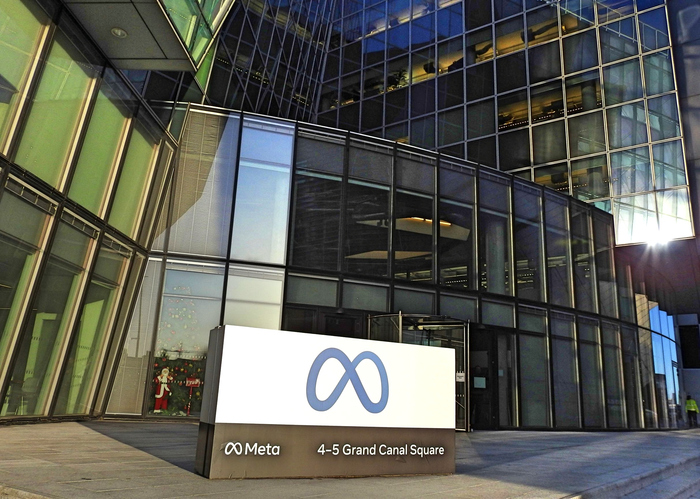May 13, 2025

This information is provided for educational purposes only by Kohn, Kohn & Colapinto and does not constitute legal advice. No attorney-client relationship is created by accessing this content. Laws and regulations may change, and this material may not reflect the most current legal developments. If you believe you have a whistleblower claim, consult a qualified attorney to discuss your specific circumstances.
A new initiative announced by the SEC in March 2022 has made such disclosures, specifically climate-related disclosure, mandatory for public companies. On May 25, 2022, the SEC proposed new rules requiring companies, funds, and advisers to disclose their ESG strategies to investors. The rules also amend the “Names Rule” so that funds with names suggesting a focus on ESG are obligated to direct 80% of their investments to companies that satisfy those characteristics.
The settled enforcement action against BNY Mellon Investment for misstatements and omissions concerning ESG considerations highlighted the need for new rules. Another event prompting calls for reform was the complaint against a Brazilian mining company. The SEC charged Vale S.A. with misleading investors about safety, ultimately leading to a deadly dam collapse in 2019 that killed 270 people and caused immense environmental harm.
Although interest in ESG began to emerge with Americans’ greater social and environmental awareness in the 1960s and 1970s, ESG became more regularized in 2006 with the United Nations Principles for Responsible Investment report.
This report inspired the first 63 investment companies to incorporate ESG criteria in their financial evaluations. Over the years, the expansion of ESG considerations has corresponded to increased awareness about issues like climate change, racism, and gender equality.
However, the salience of these issues has also created a perverse motivation for companies, funds, and advisors to exaggerate their dedication to ESG concerns, called greenwashing. And while third-party providers give ratings to ESG funds, these can be subjective and not comprehensive.
The SEC has devised the following rule changes to address these concerns about shareholders and investors not having access to accurate and complete information on ESG compliance.
- Perhaps the most significant of these new policies require that funds disclose ESG strategies in their prospectuses and annual reports. The SEC requires that financial advisers disclose their ESG strategies in their brochures.
- Another rule mandates that funds release their ESG disclosures in a standard table format for easy compilation by the SEC. In table format, investors can quickly compare the practices of different ESG funds.
- Funds that claim to be environmentally focused are now required to disclose their portfolio investments’ greenhouse gas (GHG) emissions. Funds that do not consider GHG emissions as part of their ESG strategy are not expected to report this metric.
- The SEC proposed to amend Rule 35d-1 under the Investment Company Act of 1940, otherwise known as the “Names Rule.” This rule requires funds to invest 80% of their assets in investments aligned with their fund name. For funds that claim to support specific ESG characteristics, 80% of their investments must abide by these ESG characteristics.
- Also, the SEC proposes to label any fund that uses an ESG or similar terminology in its name but prioritizes other non-ESG factors when weighing investments as misleading and in violation of the new rules.
The SEC divides funds into integration, ESG-focused, and impact funds to better enforce the new rules.
- Integration funds that equally weigh ESG and non-ESG factors in investment decisions only have to submit a brief description of their ESG strategies. An example is Amana Incomewhich balances ESG factors like resource efficiency, community and labor relations, board composition, and business ethics with financial sustainability characteristics like management strength, low debt, and strong balance sheets.
- For greater scrutiny, ESG-focused funds are required to document their ESG strategies in an overview table. Funds that base their investments on environmental friendliness are subject to greenhouse gas (GHG) emissions disclosures, including their portfolio’s carbon footprint and weighted average carbon intensity.
- Should the ESG-focused fund use proxy voting to implement its ESG strategy, it must identify the proxies and provide information about the ESG engagement meetings. An example of an ESG fund is Vanguard FTSE Social Index Fund (VFTAX), which only invested 0.35% in fossil fuels.
- An impact fund is a subset of an ESG-focused fund. Impact funds are required to disclose their achievements toward that specific ESG focus. An example of an impact fund is Acumen, which strives to serve low-income individuals and has invested in Everytable. Everytable is a healthy restaurant located in food desert neighborhoods.
In tailoring disclosures to the level of stated ESG focus, the SEC enforces transparent reporting by funds and advisers. They will find it more difficult to deceive their investors about their actual ESG impacts.
The SEC created the Climate and ESG task force to enforce these new rules. Sanjay Wadhwa, Deputy Director of the Division of Enforcement, leads the task force.
Whistleblowers who have information about ESG violations may be eligible for rewards. Qualified SEC whistleblowers are eligible for a reward ranging from 10 to 30 percent of the recovered monies from each sanction.
For more information about whistleblower reward programs, see the linked FAQs CFTC, IRS, Dodd-Frank, and a general overview of SEC’s rewards.
SEC press releases related to this topic:
- Satyam Khanna Named Senior Policy Advisor for Climate and ESG
- SEC Announces Enforcement Task Force Focused on Climate and ESG Issues
- SEC Responds to Investor Demand by Bringing Together Agency Information About Climate and ESG Issues
- SEC Proposes to Enhance Disclosures by Certain Investment Advisers and Investment Companies About ESG Investment Practices
Articles related to this topic:
- SEC Announces First Enforcement Action by ESG Task Force
- SEC’s Proposed Climate Risk Disclosure Requirements Pave Way for More Climate Whistleblowers
- Whistleblowers Key in SEC’s Enforcement of Climate Risk Disclosures
- SEC Signals Increased Focus on Climate Issues, Encourages Whistleblowers to Come Forward
- The SEC Turns Its Attention to Climate and Environmental Enforcement
- “We are not going to be moving slowly,” SEC Director on ESG Disclosure Requirements
- Mandatory ESG Disclosures Open Door for Whistleblowers Who Aim to Help Public Good
- As ESG Investments Continue to Rise, Whistleblowers are Critical to Uncovering Fraud
Focused on Protecting ESG Whistleblowers
Our firm is on the forefront of representing whistleblowers who disclose information of Environment, Social and Governance (ESG) violations or financial frauds putting investors at risk. Former SEC acting chair and commissioner Allison Herren Lee, now Of Counsel at Kohn, Kohn & Colapinto, leads our ESG whistleblower practice area and is ready to serve and protect whistleblowers, and help them seek rewards under the Dodd-Frank Act and SEC Whistleblower Program. If you’re an ESG whistleblower seeking to report a concern, contact our law firm today to speak confidentially with Allison Lee.
“[Whistleblowers] display extraordinary bravery to expose fraud and wrongdoing, and to shine light in some very dark places. In doing so, they reinforce our fundamental values – that the rule of law matters, and no one is, or should be, above the law… They help create transparency, and from transparency flows crucial accountability.”
Whistleblowers Fight Tremendous Odds and Deserve Better
Statement by Allison as SEC Commissioner, September 23, 2020
Read Full Statement
Our Firm’s Cases

Environment & Human Rights Violations Exposed
Oil industry’s environmental crimes and cover-up in Colombia have been exposed. Whistleblower Andrés Olarte Peña, with the support of his attorneys Kohn, Kohn & Colapinto and the damning evidence compiled in the Iguana Papers, is calling for an investigation into Ecopetrol and its executives by the Colombian government and the U.S. Securities and Exchange Commission.

$30 Million Award
Protecting the confidentiality of Wall Street whistleblowers is among the most important breakthroughs in federal whistleblower law. Under the Dodd-Frank Act, whistleblowers can file anonymous cases, and everything about their case, including who they sued, remains secret.

$13.5 Million Award
Our firm represented an anonymous whistleblower, who on May 17, 2021, received a whistleblower award of almost $13.5 million. The SEC has issued more than $31 million in whistleblower awards related to this case.

![Reporting Recordkeeping Failures To The Sec [2025 Guide]](https://kkc.com/wp-content/uploads/2025/01/Recordkeeping-Failures.jpg)




